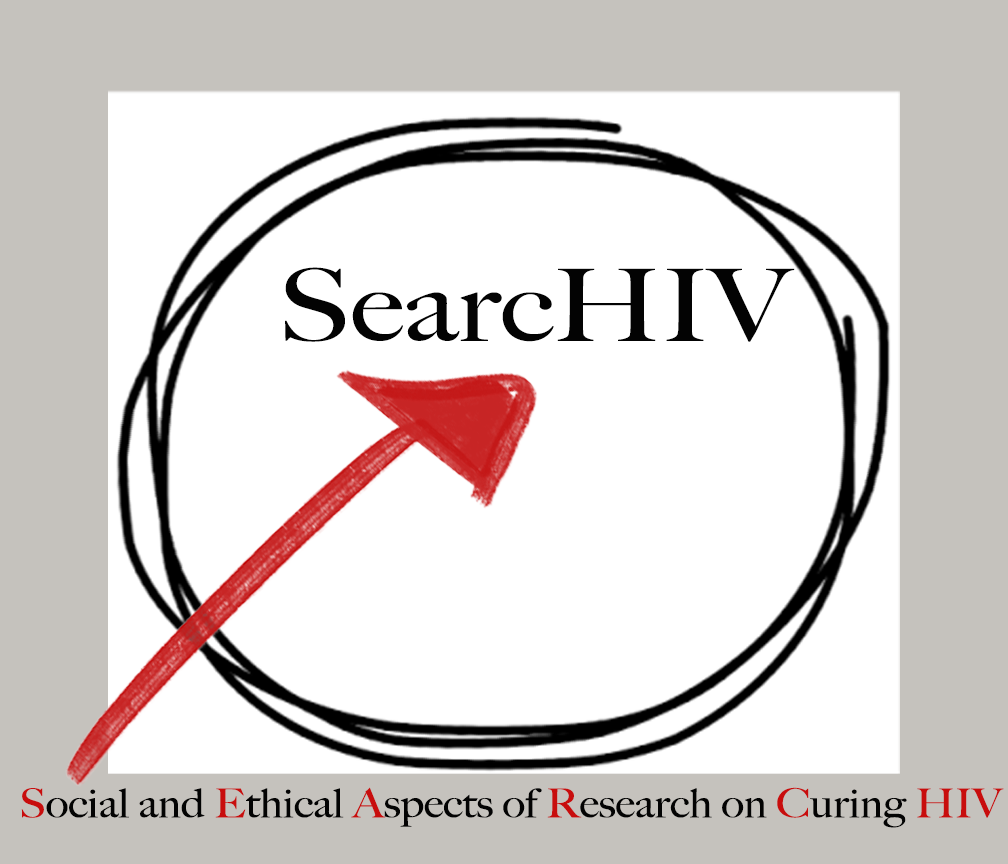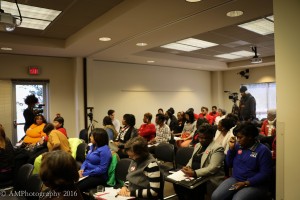By: Jennifer Hendrix, 2BeatHIV/searcHIV intern, NCCU student
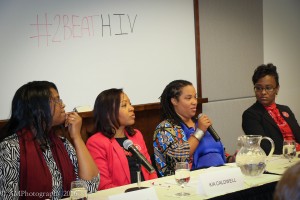
The Chapel Hill-Carrboro Area Alumnae Chapter of Delta Sigma Theta Sorority, Inc. and the 2BeatHIV Project co-hosted “Red for Cure”: A Forum on Black Women and HIV Cure on Saturday, February 27, 2016 at the UNC Friday Center. The community-focused event provided a space for community members and researchers to openly address issues related to curing HIV among Black women, who are one of the most vulnerable populations for acquiring the virus. The event featured a panel of UNC researchers including Dr. Kia Caldwell, Professor UNC-Chapel Hill; Dr. Maya Corneille, Professor NC A&T State University; Dr. Bahby Banks, Research and Evaluation Consultant; and Niasha Fray, MA, Doctoral Student, UNC Health Behavior. Approximately 45 attendees discussed issues related to Black
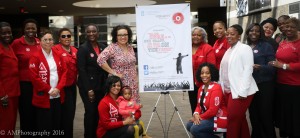
Women and HIV cure research, including HIV-related stigmas, overcoming barriers to accessing health care, increasing educational opportunities, and increasing communication with women living with HIV. One of the most impactful topics to emerge from the discussion was about ways to combat HIV-related stigmas. One woman living with HIV stated, “The issue is that we have support groups with HIV, but we do not have support groups for our loved ones to learn about support and the disease and how to protect themselves. How can I educate my
sister to not be afraid if I can’t bring her into my support group?” To combat stigma, it is important to provide combined education and support for those living with HIV and their families to openly discuss the challenges related to HIV.
The event also focused on how community members could be involved in finding a cure for HIV. Dr. Allison Mathews asked, “What should the future of HIV cure look like in our communities?” An attendee responded, “Before we can reach a cure we need to increase access to healthcare,
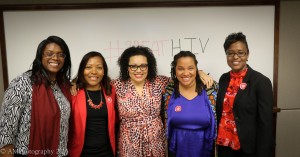
education, and involve men in discussions about women’s health.” To date, researchers are working to improve community engagement, better understand the ethics of HIV cure clinical trials participation, and develop new medications to cure HIV. Dr. David Margolis, Director of the HIV Cure Center and
Professor of Medicine at UNC Chapel Hill is partnering with Glaxo Smith Kline to develop new scientific approaches to curing HIV. Currently people living with HIV can take medications to prevent themselves from passing the virus on to their sexual partner. Additionally, PrEP (Pre-exposure prophylaxis) can be taken on a daily basis to prevent HIV-negative individuals from acquiring the virus.
Researchers at UNC-Chapel Hill are global leaders in efforts to find a cure for HIV, yet the involvement of
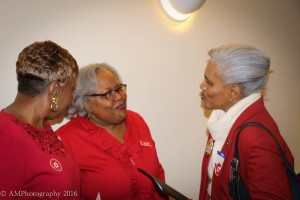
community leaders is also necessary to reach the goal of an HIV free society. To get involved in finding a cure for HIV, join the confidential discussion forums hosted on 2BeatHIV.org. Contact Dr. Allison Mathews for more information about the 2BeatHIV Project at amathews@email.unc.edu
About Delta Sigma Theta Sorority, Incorporated
Delta Sigma Theta Sorority, Inc. was founded in 1913 on the campus of Howard University to promote academic excellence; to provide scholarships; to provide support to the underserved; to educate and stimulate participation in the establishment of positive public policy; and to highlight issues and provide solutions for problems in communities. Today, Delta Sigma Theta Sorority has more than 900 chapters worldwide and has initiated over 300,000 members. The sorority uses its Five-Point Programmatic Thrust of economic development, educational development, international awareness and involvement, physical and mental health, and political awareness and involvement to develop its national programs. For more information, please visit www.chcaa-dst.org.
